Everspace 2 has been a huge success for Rockfish Games, with over 300,000 units sold already. We reached out to the studio’s CEO and co-founder Michael Schade to discuss the game’s marketing, Early Access, the importance of demos, and the impact of Game Pass on sales.

Michael Schade
Alexander Semenov, Game World Observer: First and foremost, congrats on the great sales of Everspace 2. After all, the game has already generated $10 million in gross revenue on Steam. How are you and your team feeling right now?
Michael Schade, CEO at Rockfish Games: Everspace 2 has been a very successful project for us. Beyond the sales so far, our team is extremely pleased by the critical and community success of the game. We’ve had glowing reviews from many of the major media outlets around the world, high praise from our favorite game influencers, and a very happy community of players.
Great! Now let’s rewind to your Early Access launch in January 2021. At what stage of development was the game? How many wishlists did you have at that time?
Michael: When we launched Everspace 2 into Early Access, the game had roughly 12 hours of gameplay through the first and second star systems and didn’t include some of our planned gameplay features which were added later. Still, we had many journalists and community members praising this early version of the game for its size and level of polish. A vital part of Early Access was communicating with the community to let them know what we were working on and that their feedback was heard.
Going into the Early Access launch, we had about 280,000 wishlists, which is a very healthy amount for a game made and published by an independent studio. In fact, the sequel had 16 times more wishlists than the first Everspace, and we went all in with all our savings. The time was right for our EA launch and it went very well.
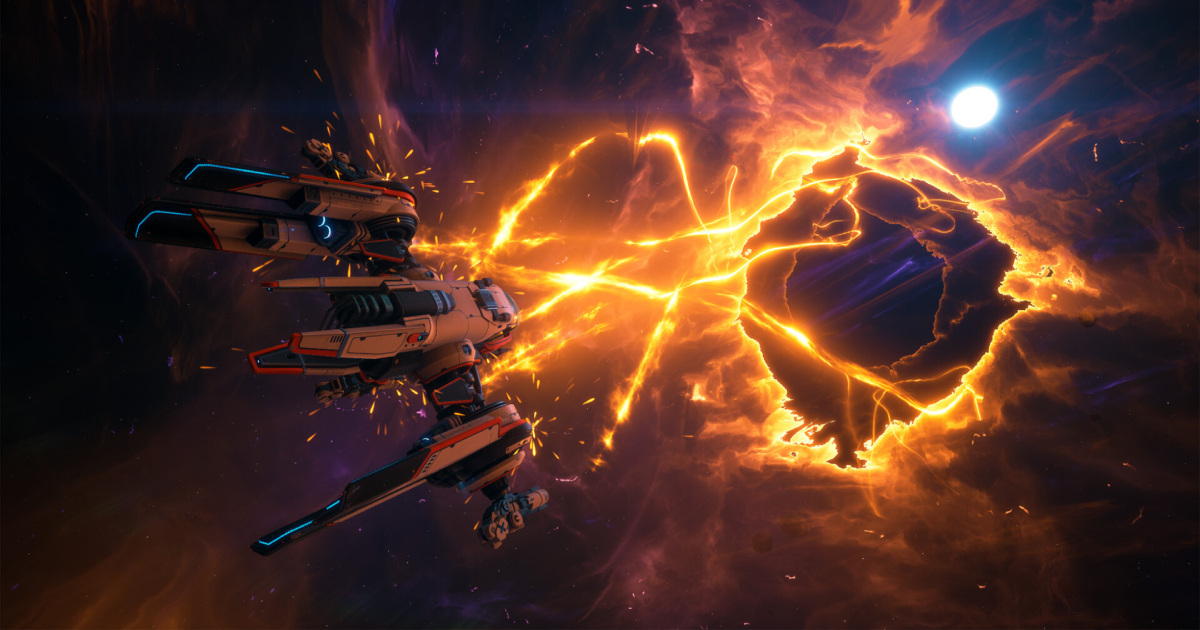
How did you promote the game in the early stages?
Michael: Leading with the announcement at the very first Gamescom ONL in August 2019, followed by yet another wildly successful Kickstarter campaign and demoing at PAX West, EGX Berlin and London, Tokyo Game Show, Dreamhack, and PAX East. We were also very active with media outreach, promoted Everspace 2 in digital showcases, participated in one of the first Steam demo festivals, and many other places as a lead up to Early Access.
If there was an opportunity to talk about or show Everspace 2, we tried to make it happen — with all the other games being made, especially at the AAA level, we had to make sure the world knew about what we were making.
You released a demo version of the sequel before its Early Access launch. What was the main purpose and what do you think makes a good demo?
Michael: Our Everspace 2 demo has been a very important part of Early Access, as well as the campaign leading up to it. Even now, we’ve kept the demo up-to-date with the current PC launch version so that interested space fans can try the game with ease.
Our demo not only gives players a sense of what we’ve made, but also gives a chance for someone to try a healthy part of Everspace 2 without having to purchase. It’s convenient for the curious and helps to keep refunds and negative reviews later on low.
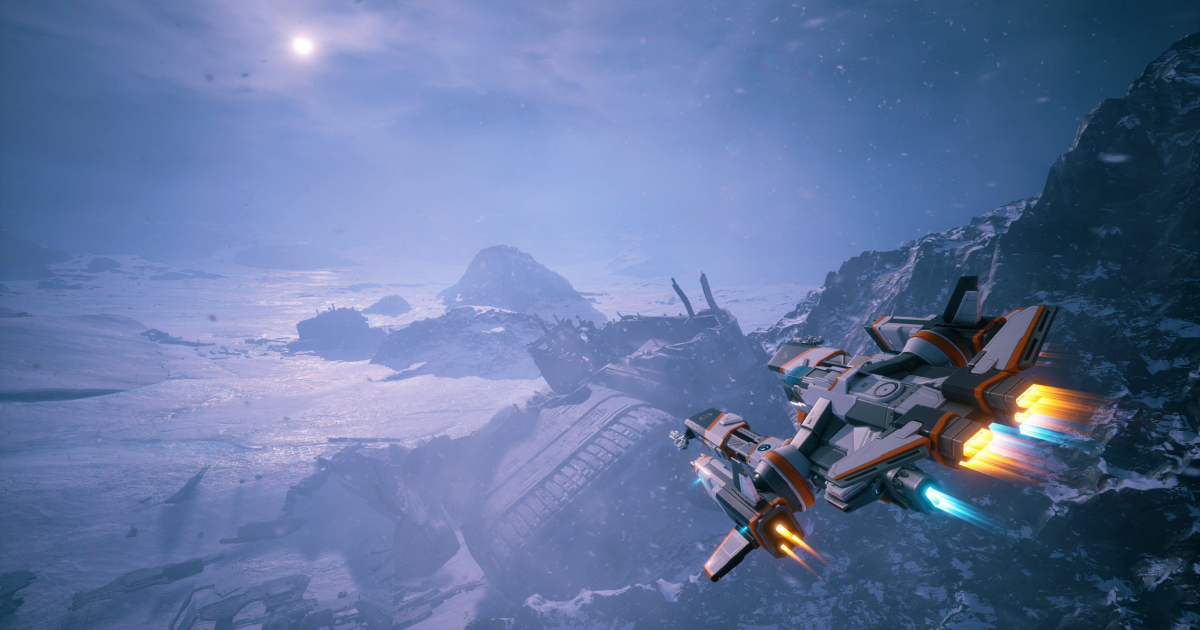
Do you have any tips for making a demo and what devs should avoid at all costs when making one?
Michael: A good demo should provide a reasonably sized, well-polished slice of your game that leaves players wanting more. While a demo doesn’t have to show all game features, it should give players enough hands-on time with the game so that they feel like they understand what the full title might be like, but not so much that they feel like they’ve got their fill.
It’s worth mentioning that demos should track player progression and carry over to the full game, so your fans can continue where they left off. Steam achievements completed in the demo should unlock in the full game, too.
During Early Access, you made a discount on the game. Is there any point in such offers before the full launch?
Michael: Yes, discounting is one of the main ways to raise your game’s profile. It’s a good way to have your title featured during sales and events, which can generate wishlists and significant revenue, too.
How did the game’s availability on PC Game Pass affect sales on Steam?
Michael: We saw very little of the expected sales drop off due to PC Game Pass subscribers. Our inclusion in Game Pass and ID@Xbox events did well to promote our launch on PC, which was very helpful!
Can you share the number of game installs from PC Game Pass?
Michael: We have seen more than 100,000 Everspace 2 players on PC Game Pass so far.
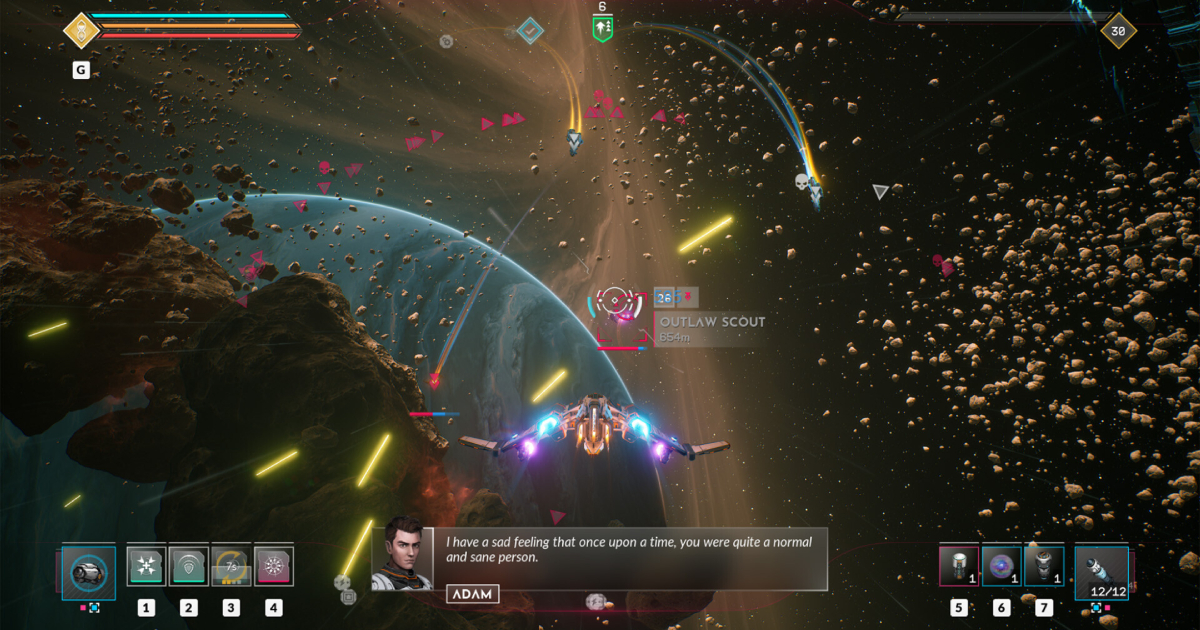
Did you originally plan for the game to spend two years in Early Access? When did you realize the game was ready for the 1.0 launch?
Michael: We originally planned to release Everspace 2 earlier than we did, but changed track after setting up our PC Game Pass deal with Microsoft. We decided to take a significant portion of that revenue and invest it in polishing and increasing the scope of Everspace 2 instead. While we took more time, the results are apparent in our 1.0 release.
When it comes to your next project, will you also try to give the game as much time as possible to “mature”, or will you try to shorten that time frame?
Michael: It depends! While we’re currently expanding the team so we can create new free content updates and a major paid DLC for Everspace 2 faster, we also have a very ambitious scope when throwing around ideas for our next title. We’ll share more about that in the future.
What were the sales of the game during Early Access (prior to the 1.0 release)?
Michael: During Early Access, we saw more than 250,000 copies sold on Steam and GOG.
And how far in advance did you start preparing for the full launch and how did you promote the game during this period?
Michael: We begin preparing for each major campaign milestone months in advance. We use this time to prepare assets for journalists, trailers, and marketing promotion opportunities with partners. Beyond those PR activities, we also ran carefully targeted ad campaigns on YouTube and Twitter with great success: the v1.0 announcement trailer clocked over four million views across all channels with a total budget of just $50,000.
Can you elaborate on your pricing policy? Why did you decide to raise the price of the game after the full launch? Is it the right strategy for everyone?
Michael: Pricing can be a tricky thing to nail down and it will depend from game to game. Our plan was to give our Kickstarter backers the best possible deal on Everspace 2, followed by Early Access early adopters. As we added more content to the Early Access build, we felt the game was worth more.
Shortly before launch, we raised the price of Everspace 2 to reflect the sheer size of the game. It is key to always be transparent about your upcoming pricing plans and give your community plenty of heads-up that the price will go up and even have dedicated Steam news at least four weeks prior, so everyone can make an educated purchase decision.
Let’s talk a bit about the niche you operate in. In general, how popular is the space sim genre among players?
Michael: Space games are a small, but growing niche that has quite a bit of variety within it. We’ve seen many longtime space game fans looking to find their next Wing Commander or Freelancer, and plenty of people new to the genre. It’s great to see so much interest in a genre of game that really attracted many people from our team to the industry many years ago.
Then there’s also a massive fan base following us, as our team is also the original creator of the critically acclaimed Galaxy on Fire series with many million pilots on mobile phones and smartphones.
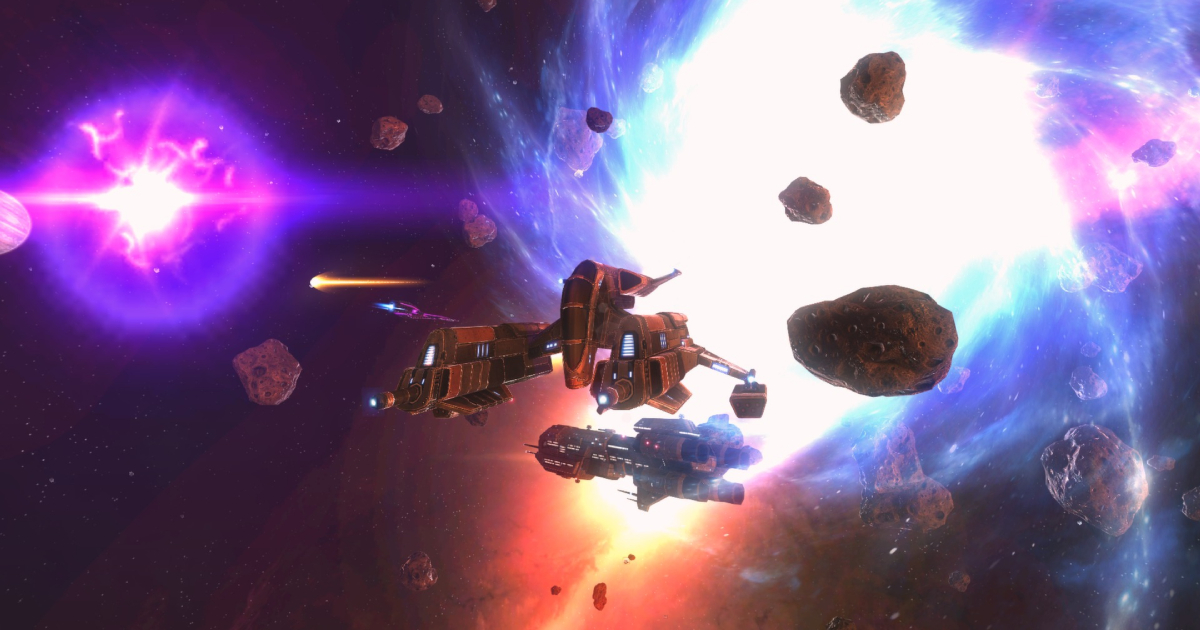
Galaxy on Fire 2
From the outside, the space sim niche seems very peculiar. On one hand, Star Citizen is raising huge amounts of money through crowdfunding, and there is also the fairly popular Elite Dangerous. Yet, the niche seems to be undersaturated. What is your own take on that?
Michael: Space combat games are incredibly hard to make because of the vastness of open space and planet surfaces, navigating in all three dimensions, extreme vessel speed, and hit scan weapons that need to be accurate even when aiming at enemies many kilometers away. On top of that, collision detection is always a huge factor in gameplay, which becomes even more critical when flying into underground tunnels or huge space stations like in Everspace 2.
It takes a team with a real passion but also a ton of technical expertise for these kinds of games to make them. Committing to a massive undertaking in a niche genre such as ours is a difficult call for some teams, especially if they have publishers who may not be interested in these kinds of titles.
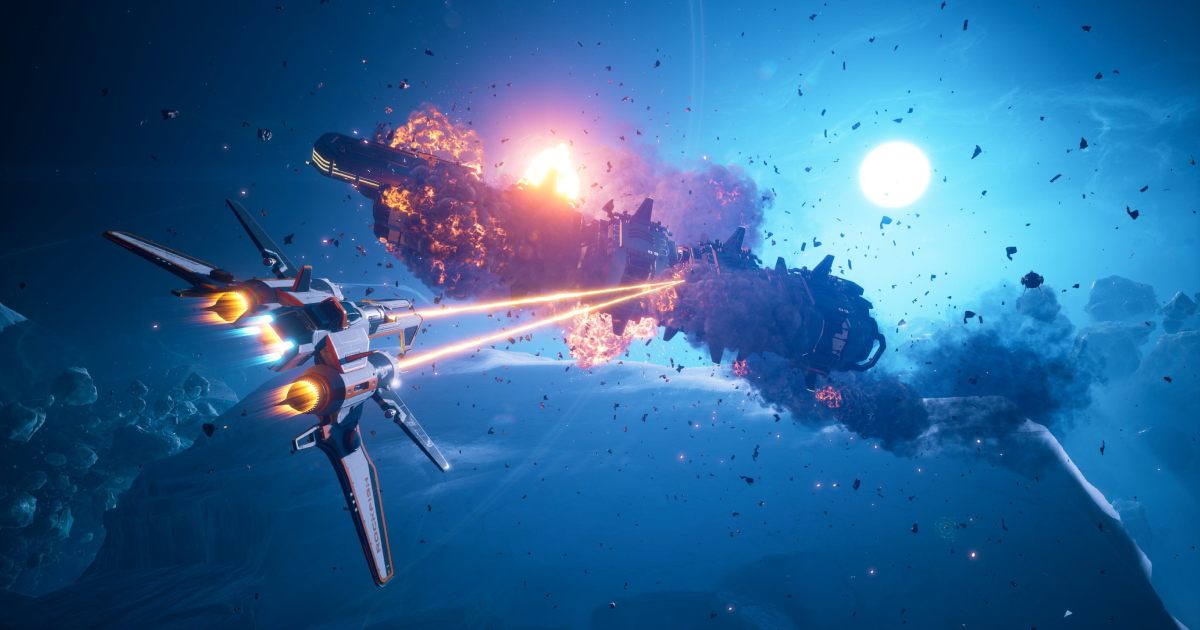
It is fair to say that competition on Steam is increasing every year. Have you noticed this when promoting Everspace 2?
Michael: Tools for game development are more available than ever before, and indie studios around the world are taking advantage of them. The appetite for games is growing as well, with more and more people around the world taking part in the hobby. However, thanks to digital distribution, everyone is competing on a global level, no matter if it’s an indie, AA, or AAA production. The real difficulty with all these games in development is catching the attention of your potential audience.
Furthermore, since Valve has changed the structure of seasonal sales with lots of sub categories featuring more games than ever, those big sales events have turned out to be less effective than they used to be. While it’s great for gamers that there’s more games on sale than ever, it’s harder for studios to generate revenue from these major beats, and you have to find new ways to drive traffic to your store page.
Last but not least, what’s next for the team and Everspace 2?
Michael: Beyond our upcoming console launch, we’re working on a free update for all platforms that will include some very cool things such as new customization options with even more awesome stuff to come down the line. We plan to share our roadmap for the next 18 to 24 months very soon, so stay tuned!
Thank you for the interview and good luck!
